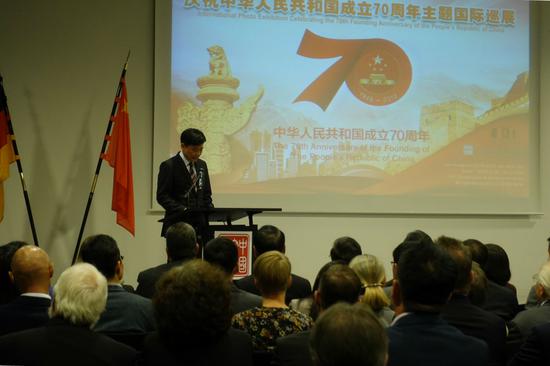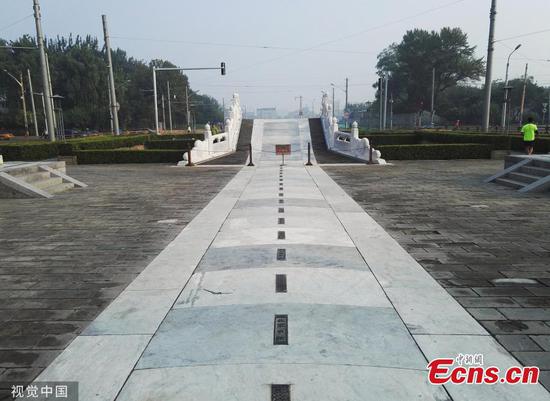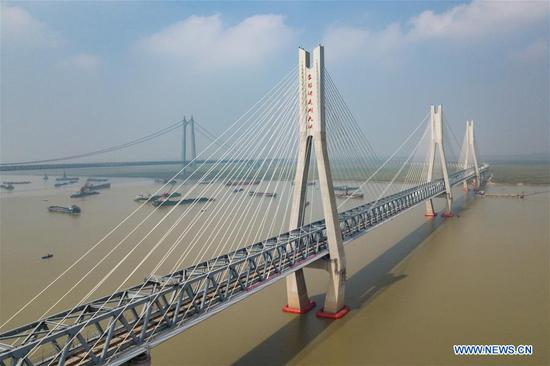
An attendee tries out virtual reality glasses at an expo during the 2019 China Cybersecurity Week in Tianjin. [Photo/Xinhua]
Emerging technologies such as artificial intelligence and 5G will set higher requirements for cybersecurity and privacy protection, according to a new report released recently by global accounting firm PwC.
The report indicated that 28 percent of the respondents believe that the most acute risk stemming from digital transformation is data governance or privacy protection, followed by innovation risk, namely, the risk from the introduction of new products, services and processes, and then cybersecurity.
Respondents from China demonstrated greater alignment of their cybersecurity activities with business goals than their global counterparts. About 83 percent of those interviewed agree that their cybersecurity team is being embedded in the business, conversant in business strategy and has a cybersecurity strategy that supports business imperatives, compared with 72 percent of the global average rate.
About 83 percent of those surveyed perceived that their cybersecurity team works in strategic partnership with other departments that manage risk in the company, to protect against the most serious threats and risks to the business, while 68 percent of their global counterparts thought so.
"Emerging technologies such as artificial intelligence, blockchain, cloud computing and 5G have become a force to be reckoned with. Companies are under pressure to use these innovations in their operations in order to realize growth, giving rise to an increase in demand for privacy and data protection," said Ramesh Moosa, cybersecurity, privacy and forensics partner of PwC China.
Chinese companies are undergoing digital transformation at a rapid pace in an effort to improve the speed and efficiency of their operations. This is causing a rise in the cybersecurity and data privacy risks they face, thus making it more challenging to build digital trust.
Lisa Li, cybersecurity and privacy partner of PwC China, said that technology companies are leading the new digital trend in China, but some traditional companies find themselves uncertain about meeting their digital transformation goals.
Li noted that some companies are considering outsourcing digital innovation processes to third-party technology service providers, and others are undergoing digital transformation facilitated by industry associations and regulators.
"The key point is to align cybersecurity programs with business development goals, so as to build digital trust together," Li said.
The study interviewed 121 Chinese executives from various industries, such as industrial manufacturing, technology, communications, entertainment and media, retail, engineering and construction, and financial services.
The report also shows that the risk management is not yet mature, as most of cybersecurity teams of Chinese companies are still at the "passive risk response" stage.
In terms of the ability of organizations to manage risks from digital transformation, 24 percent of Chinese executives and IT professionals believed that they are very effective at doing so, 7 percent lower than the global average level.
In addition, 55 percent of Chinese respondents are less optimistic and feel they are only somewhat effective at managing these risks, compared with 40 percent of the global average rate.
According to the latest market study by International Data Corp, worldwide spending on IT security solutions will achieve a compound annual growth rate of 9.2 percent over the 2018 to 2022 period and total $133.8 billion in 2022.
Li Aidong, deputy director-general at the cybersecurity coordination bureau of the Cyberspace Administration of China, said more efforts will be needed to promote the development of the cybersecurity industry, and defend against the risks and challenges posed by new technologies and applications.
Li emphasized that enterprises play a major role in the innovation of security technologies.
Moreover, there is a need to strengthen the security protection of key information infrastructure, which is the nerve center of the economy and society, the top priority of network security, and the targets that are possibly attacked, he said.


















































